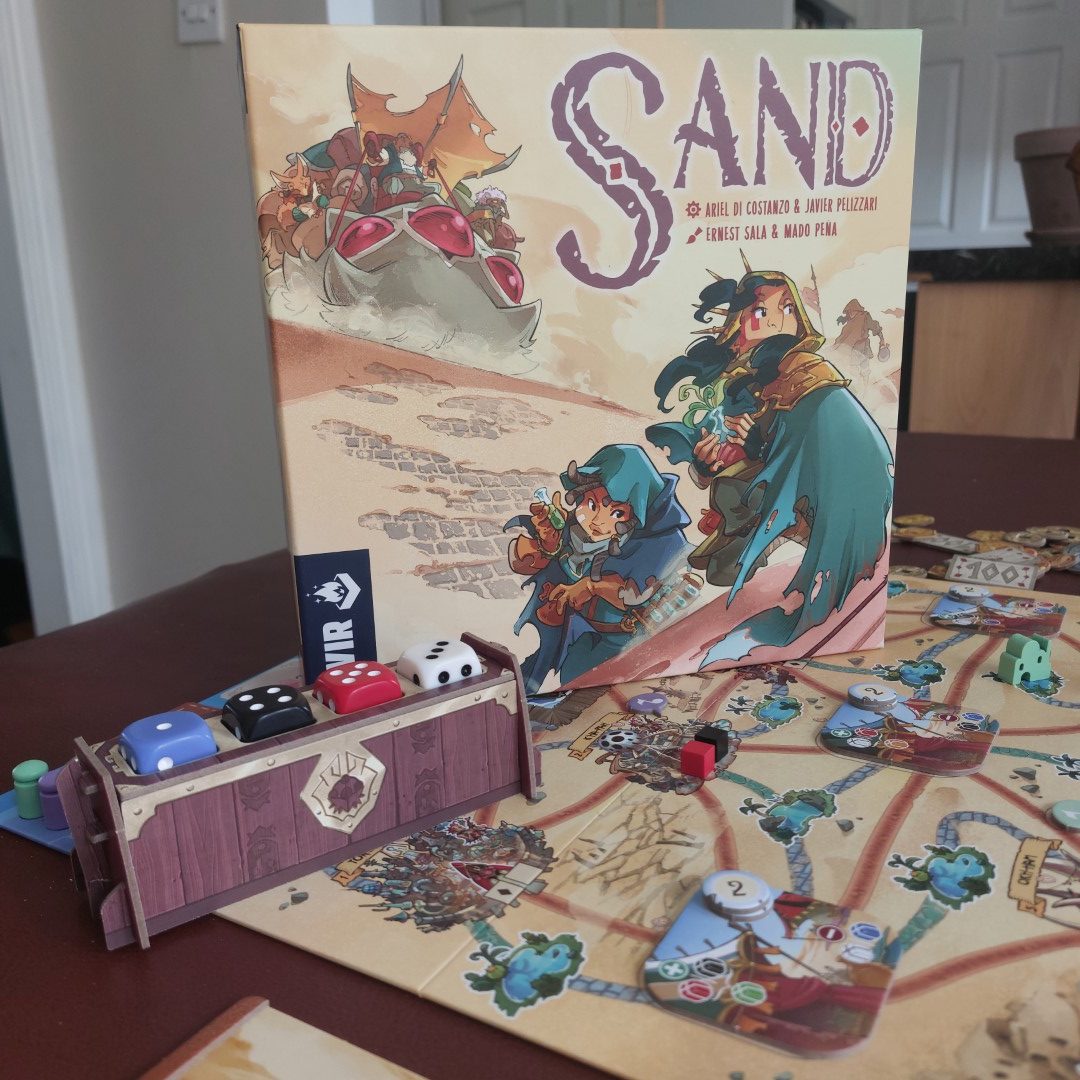Sand from Devir Games is a pick up and deliver game set in the Bitoku universe and sees you take on the role of a worm rider (better known as desert traveller) to visit the towns and cities spread across the sand dunes. All in the aim of making the most gold. Once again, Devir has knocked it out of the park with stunning artwork throughout to lure you into this pick-up and deliver game.
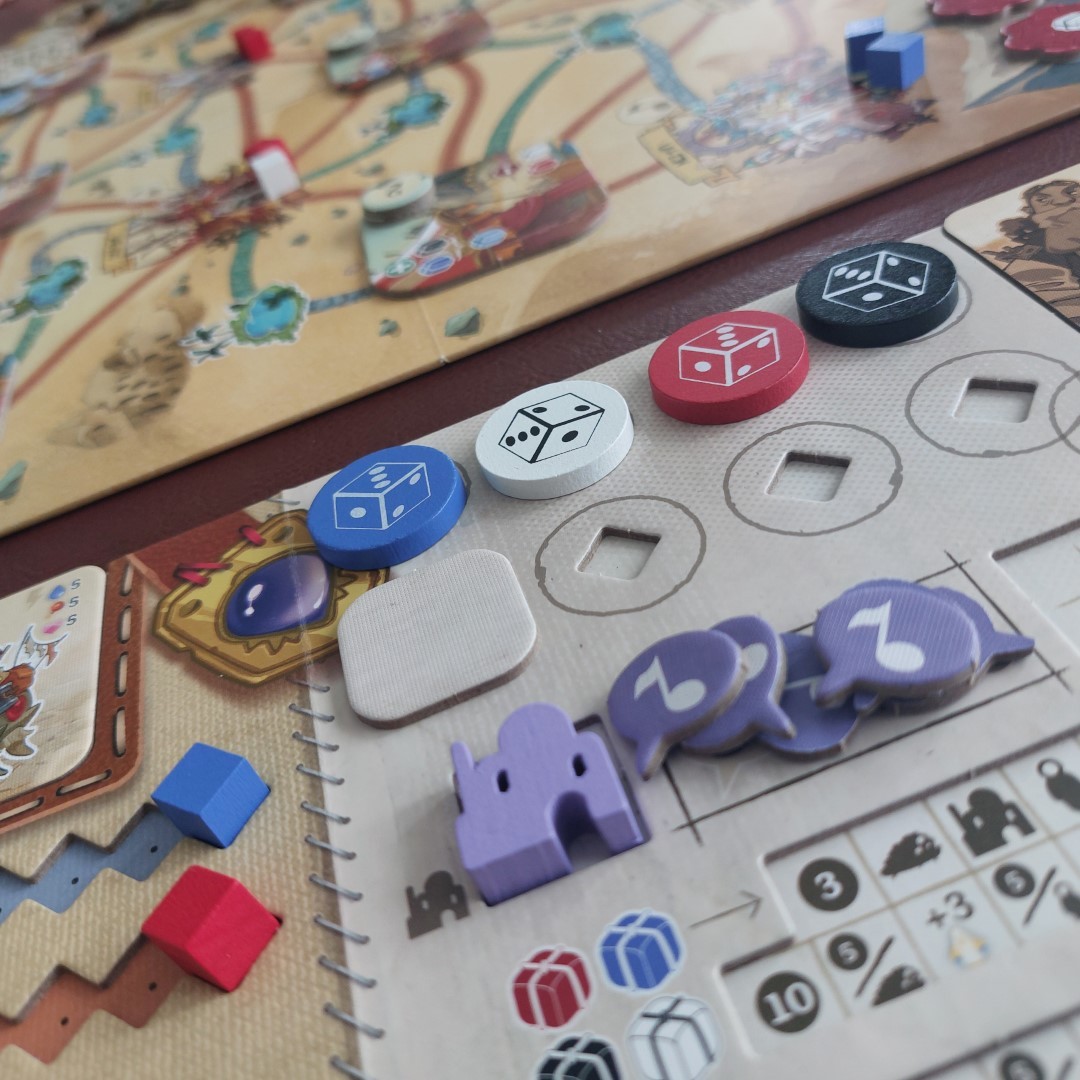
Sand takes places over a number of rounds (5 or 6, depending on player count). With each round being split into morning, afternoon, and night, with each player taking a turn in each phase. At the start of each turn, you’ll take available action tokens from the top of your player board and move them to the available spaces below. You’ve a maximum of four action spaces. However, one starts blocked and as you pick up plants this will mean actions become occupied and therefore unavailable, and goods you pick up go onto available action spaces, meaning you’ll end up with less actions! After you’ve taken a turn, you’ll move your used action tokens back to the top row.
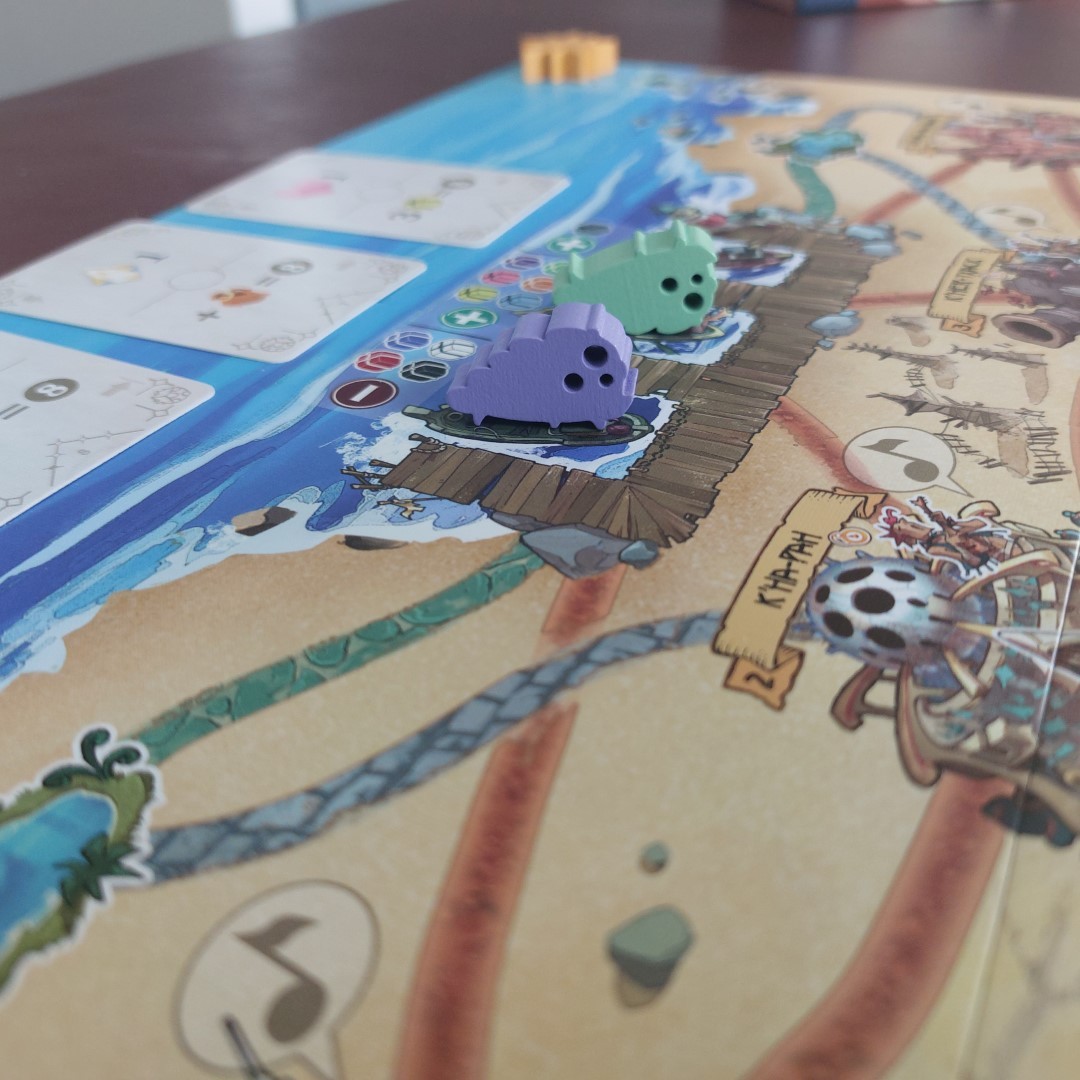
Those actions are:
Travel
Load plants
Deliver goods
Care for your worm
Pray
Earn Prestige
Compose songs
Special acolyte actions
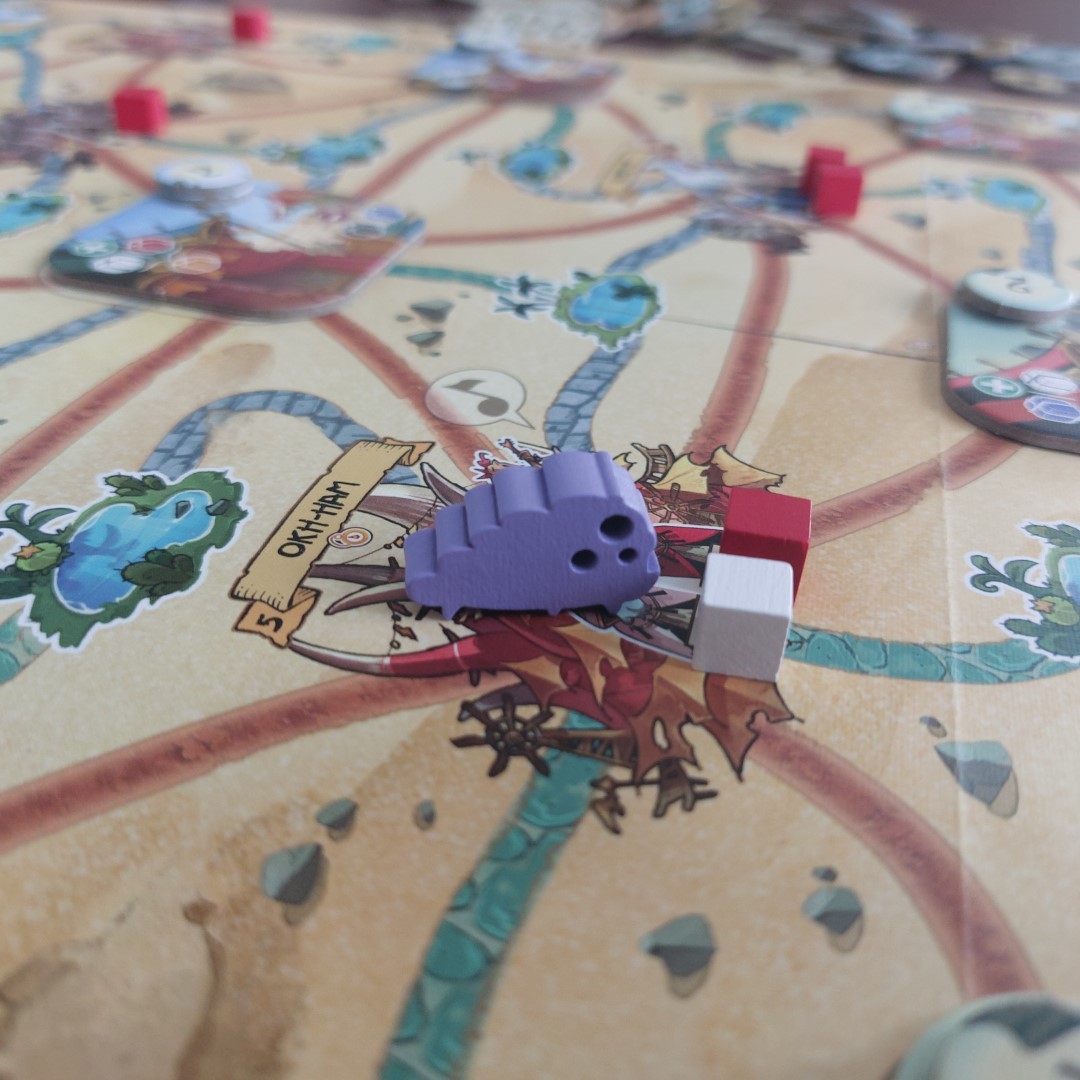
Travelling is moving your worm, but worms are thirsty creatures so need hydrating and feeding each time, you can use any colour dive for travel, you’ll just need to use a dice of the corresponding value.
Loading plants requires a dice of a specific colour to be able to load that plant from a location you’re in onto your worm.
Delivering goods is simply well that, in the location you’re in, deliver the goods shown and take the shown money, plus money equal to your prestige track. Then, place goods on your goods board and gain the covered bonuses. In addition camps will generally offer you an additional bonus e.g. if you deliver all the plants required to a minor tribe you’ll get a minor tribe token, whereas if you deliver the to a main camp, you’ll get a box of crafts, e.g., deliver a blue and red cube to get a green cube, which can then be sold at the cities or port.
Caring for your worms, is well that, like looking after a pet you’ll need to hydrate your worm (using blue dice), feed your worm (using red) or restore its health (requiring two dice). Who knew worms were so needy!
Pray and earn prestige are very similar in that you’ll use the white or black dice to advance your prayer level or prestige.
Composing songs requires an action token whilst in a city to place one of your songs. Each city can only have one song, so you’ll replace the token there. Song tokens gain you additional money when delivering goods.
That leaves the acolyte special action if you take an action corresponding to the acolyte, and that also matches the colour of a good in that city. You can pay 1 gold to load that good.
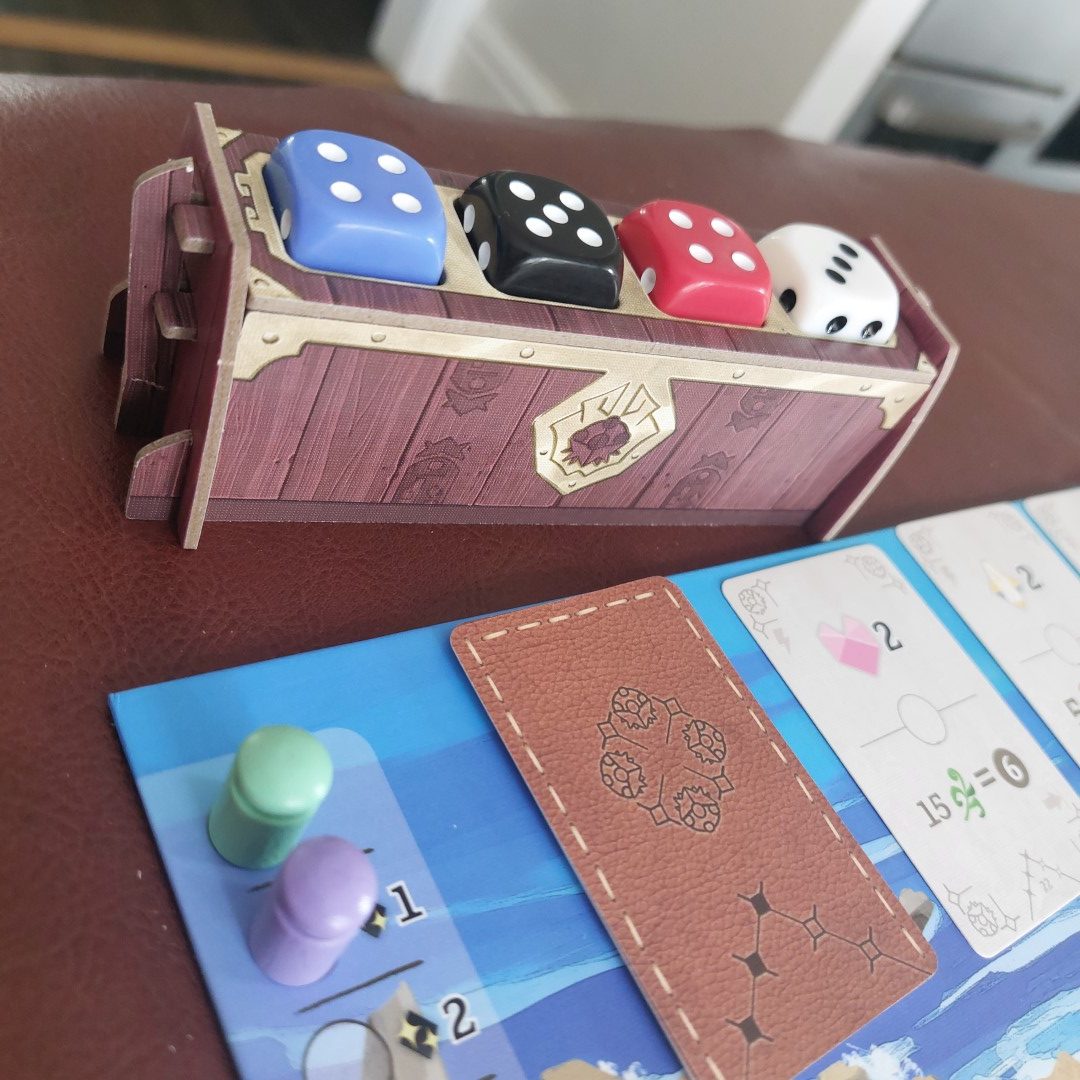
After all three phases you’ll perform an upkeep phase, which is rolling dice (yes the dice have the same value for morning, afternoon and evening), draw mission cards which give you the opportunity to earn end game points or a one off bonus. Set the player order and refill cities.
That is a quick rules summary, and I’ve glazed over some bits.
But what I wanted to also highlight was the bonuses you receive for delivering goods as that’s where the best part of the game is, you’ll unlock travel companions giving you on going abilities e.g stacking two cubes of the same colour on your worm. Set up a shelter, which feels a bit like your own little hub, evolve your worm, like a pokemon! There’s also monetary bonuses, and the first person to deliver four of a plant gets a seal, which gives you extra coins at the end of the game for each plant of that type you have. The travellers you can also set up at the start of the game to add some variability and additional powers are also a nice addition and really don’t add much in terms of complexity (although I don’t think they are balanced!).
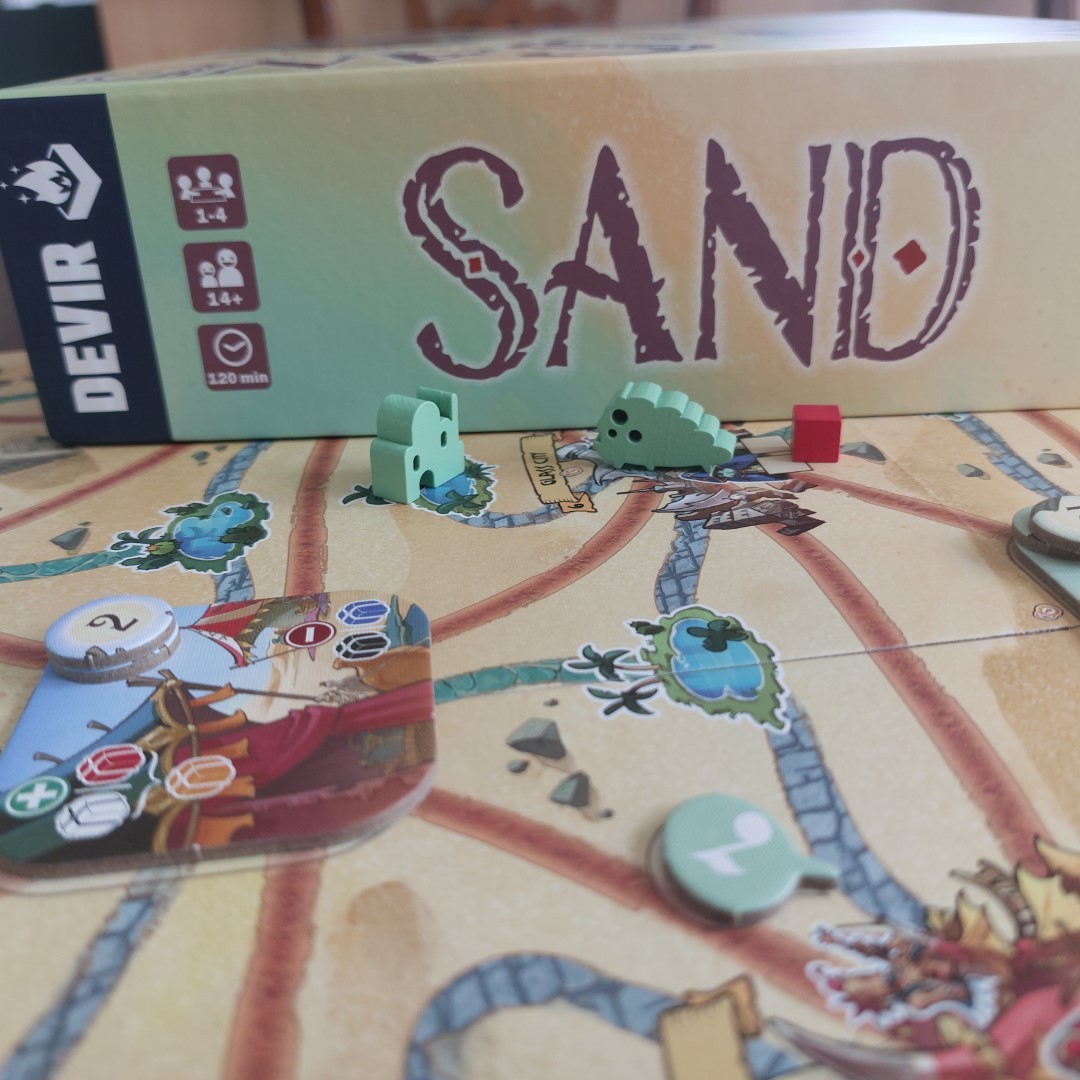
However, after 3 plays, Sand doesn’t feel rewarding. And I’m sure we’ll once again get into the debate of how many plays are needed for a review, but I feel like I’ve seen what Sand has to offer and it’s not enough to keep me coming back for more. Firstly, there is the terrible terrible rulebook. Now I’ve read the discourse about defending that the rulebook wasn’t originally written in English and then was translated. But so many other games do that, and I think it’s more than just a translation it’s a layout, order of the rules and general explanation (which okay you could say is potentially down to the direct translation). I sat read the rulebook, read it again, and then gave up and went to youtube. Like the rules are there, you’ll just need to spend a whole lot of time trying to digest them.
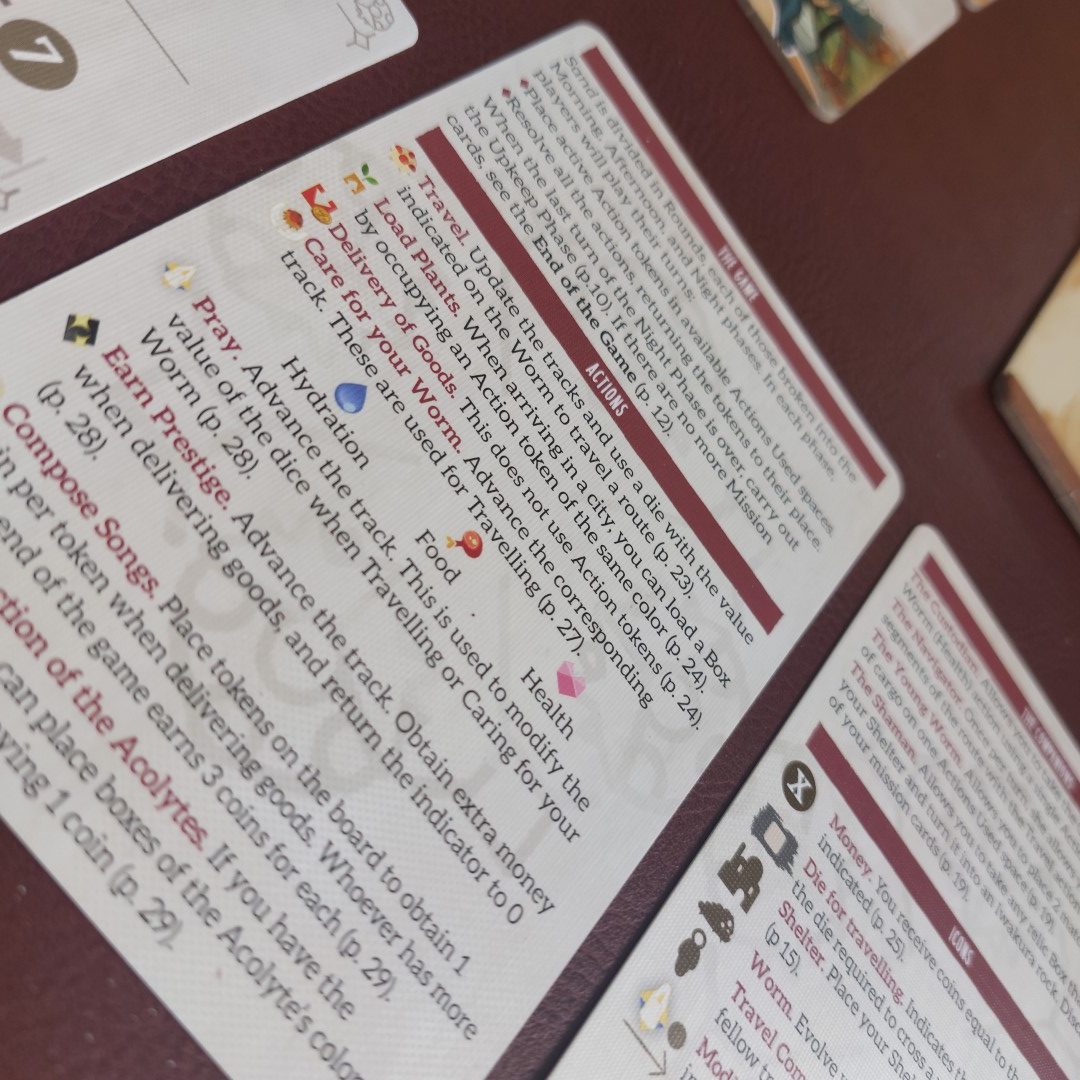
But if we look past the rulebook, there’s a puzzley feel here that is wrapped up in frustration, limitation and although that’s clearly intentional. In the sense that you will have less actions as you pick up goods, so planning is vital, in fact it’s a must, but that planning can lead you into situations where you ultimately feel stuck, and at times the rationale for the restrictions feels almost arbitrary. And there’s the redrawing of cubes that often felt like the luck of the draw benefitted some players but not others, in a game where planning and every action really counts, that sense of being outdone by the randomness of cubes from a bag can only add to that sense of being stuck. I wonder if that intentional tightness of the mechanisms, actions, and resources is actually too unforgiving and probably the biggest off put in terms of your investment. And at four players, I can’t help feel that a different board was needed, as the game board feels far too restrictive at four players and if you’re last in turn order, you’ll find yourself with either scraps for goods!
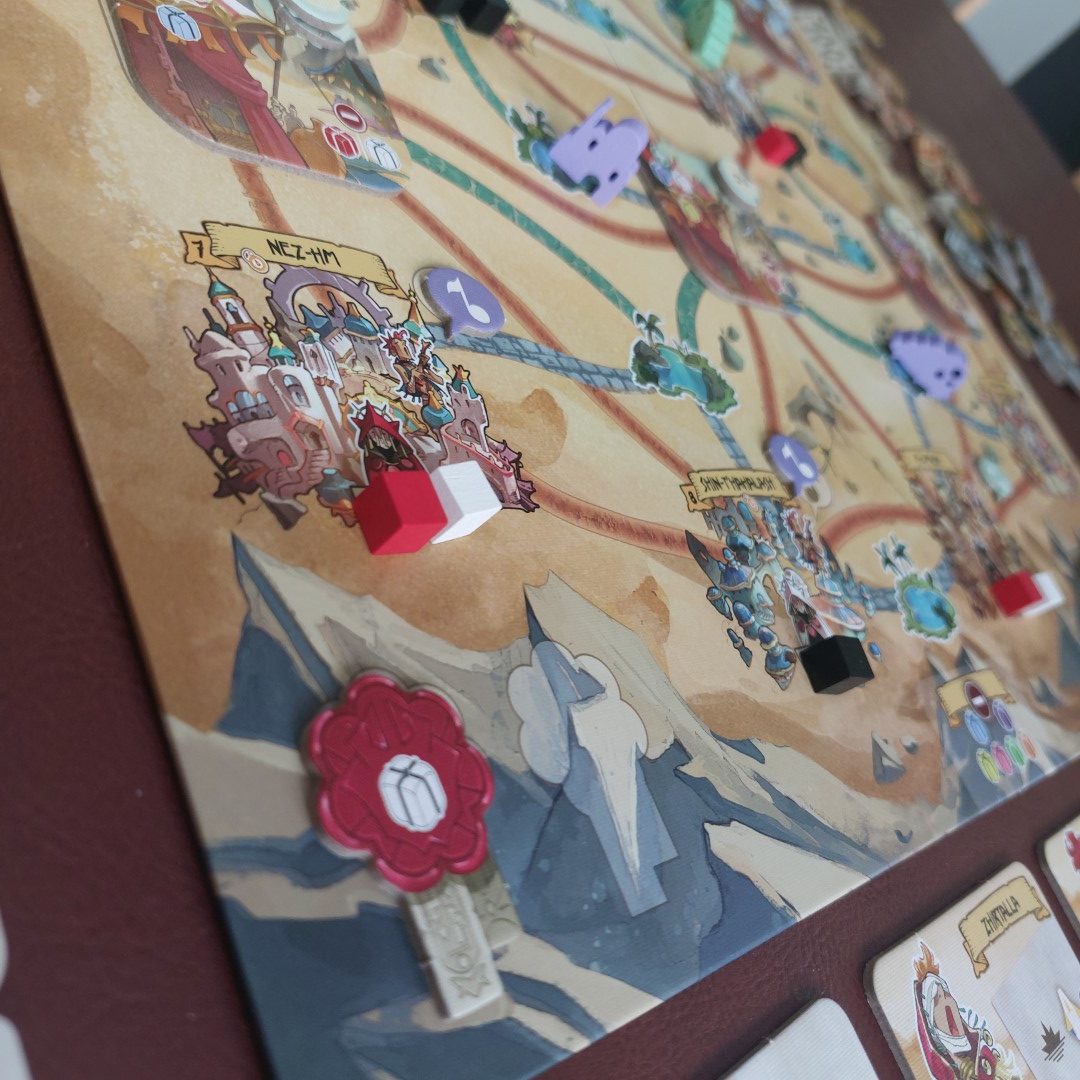
Overall, you know I rate games on a scale of:
Buy or play
Wait for sale or play if you like game XYZ
Avoid
Sand for me is for me personally in the firm, avoid, and I’d probably be happy not to play it again. I’ve left my plays feeling almost unrewarded and that for my time, I didn’t feel like I had fun.
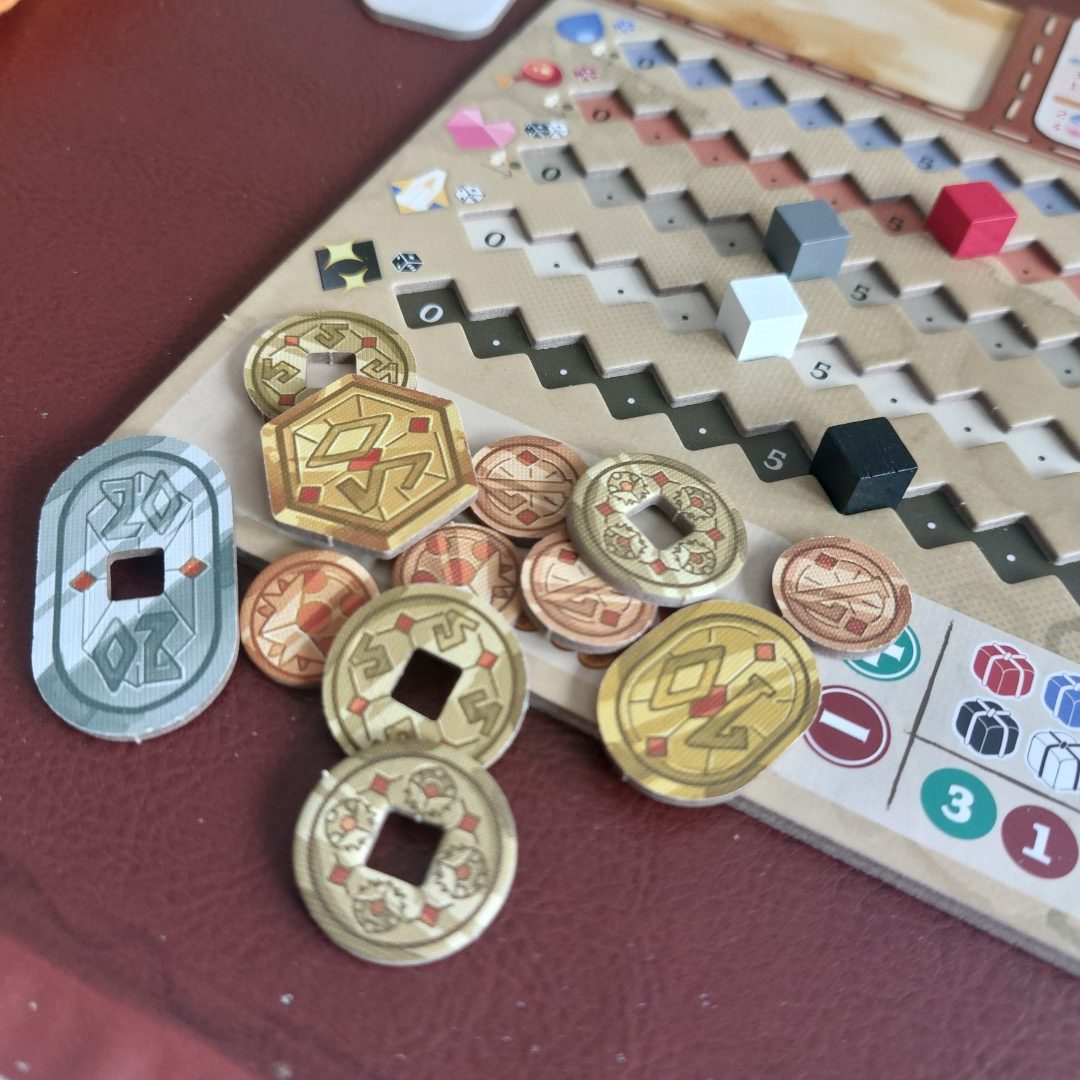
I felt like I spent too many turns really not doing anything, take Brass for example turns feel like you’re making progression whether that’s expanding your network, adding infrastructure or taking a loan, there isn’t a feeling that your actions are necessarily restricting later you. Okay, in the Canal era, a building prevents you from building again in that city, but you then don’t have fewer actions as a result. And that’s what I’ve struggled most with in Sand, it’s a pick up and deliver game in which you’ll need to pick up goods, yep got that, but once you’ve picked them up, you’ve less actions available until you deliver. Thematically, I’ve struggled with how to explain this. Your worm is carrying the goods, and the worm isn’t necessarily taking all the actions apart from the travel action. But the number of actions and types of actions becomes restricted, meaning Sand felt like a plan making decision experience rather than fun.
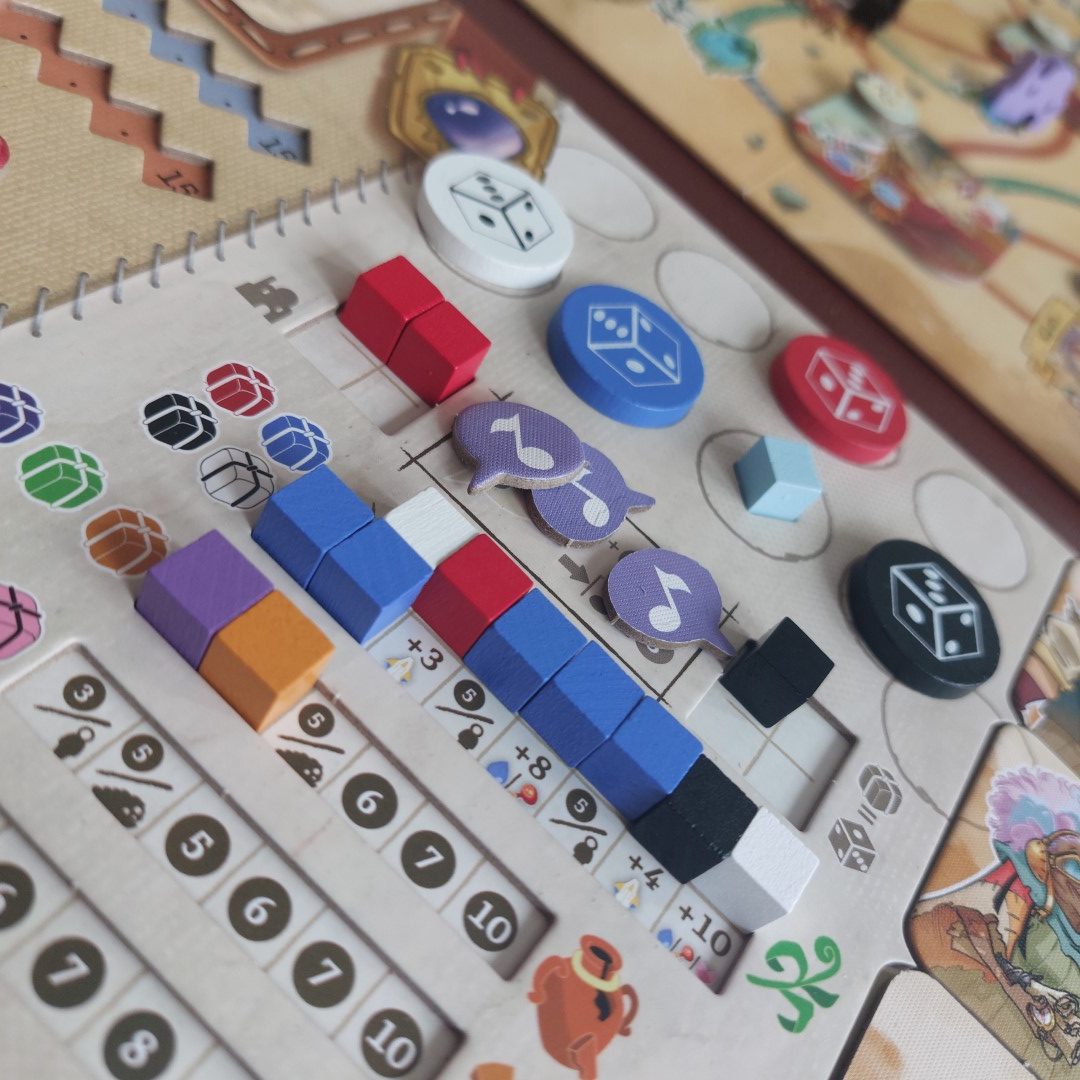
And isn’t that what we play games for? Now, if you enjoyed Istanbul and wanted to try another pick up and deliver game, Sand could be worth a look, but please don’t bother with the rulebook for learning! I’d probably say you should check out Istanbul or Yokohama first though!
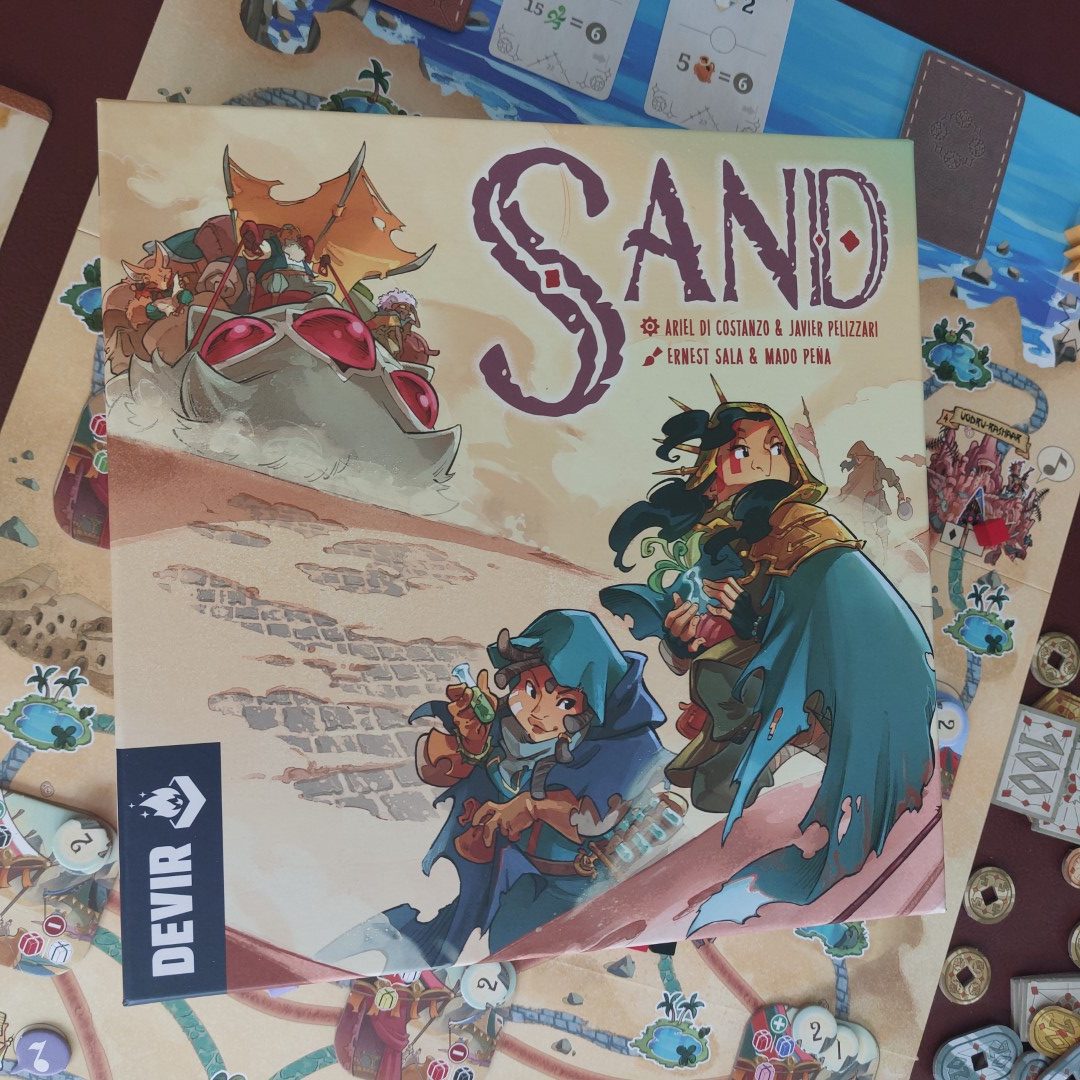
Want to buy Istanbul or Yokohama? You can here from Kienda: https://kienda.co.uk/

